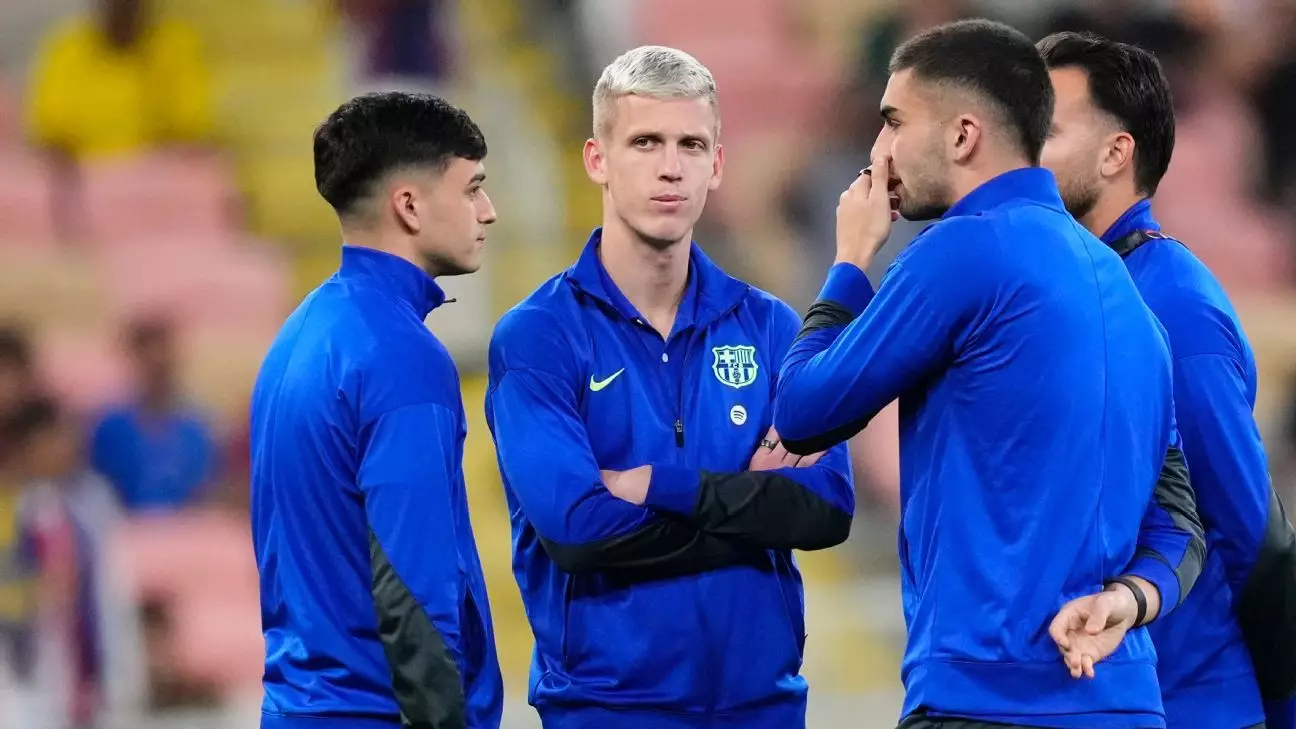The recent controversy surrounding FC Barcelona’s acquisition and registration of players Dani Olmo and Pau Víctor has spotlighted critical issues within the structure and governance of Spanish football. This incident not only raises questions about financial fair play regulations but also highlights the tensions between clubs and their governing bodies. The reaction from Athletic Club, one of the most storied clubs in Spain, showcases a growing concern over perceived inconsistencies in the enforcement of rules that are supposed to govern all clubs equally.
Barcelona’s predicament began when the club failed to meet the LaLiga deadline of December 31 to demonstrate compliance with financial fair play regulations. This setback led to the refusal of player registrations by LaLiga and the Royal Spanish Football Federation (RFEF). However, Barcelona subsequently appealed to the Spanish Sports Council (CSD) and obtained temporary playing registrations for both Olmo and Víctor. This move has been met with significant backlash, particularly from Athletic Club, whose president Jon Uriarte did not pull punches in voicing his disdain for the CSD’s decision.
Uriarte described the situation as “grotesque,” emphasizing the arbitrary nature of the provisional measure granted by a political body. His comments reflect a broader frustration within the football community regarding the expectations placed on clubs while simultaneously permitting exceptions that can distort competitive integrity. Athletes, fans, and even administrators are left struggling to reconcile these discrepancies, as they threaten to undermine the credibility of the sport itself.
Athletic Club’s position is particularly emblematic of a growing sentiment in LaLiga that the rules are not applied consistently across the board. Their president voiced concerns not only over Barcelona’s admission of Olmo and Víctor but also highlighted the absurdity of traveling to far-off destinations like Saudi Arabia for matches, only to face an administrative crisis at home. These remarks encapsulate a sense of being unfairly treated in an environment that is supposed to foster equity among all participating clubs.
The criticisms voiced by Athletic Club seem to resonate beyond mere frustration; they signal a deeper concern about the future of the competition. As Uriarte pointed out, the necessity for clubs to collaborate in promoting and expanding the league contradicts the reality of favoritism that appears to plague decision-making within the governing bodies. Such inconsistencies can foster animosity and division among clubs, detracting from the overall unity that is vital for the prosperity of Spanish football.
In response, Barcelona’s sporting director Deco sought to dismiss these concerns by asserting that every club should focus on its own issues and that the club is simply operating within the parameters set by governing bodies. His comments, while aiming to deflect criticism, may inadvertently highlight a larger problem of accountability in football governance. If clubs feel empowered to act based on selective interpretations of rules, it challenges the fundamental principles of fair competition.
The sentiments expressed by Athletic forward Iñaki Williams add further depth to this conversation. Williams expressed his concerns over the potential tarnishing of Spanish football’s image, suggesting that such decisions create a sense of chaos rather than teamwork. This chaos has far-reaching implications, as it creates confusion for fans and players alike, leading to an erosion of trust in the sport’s governance.
The discord between Barcelona and Athletic Club over this issue raises critical questions about the future landscape of Spanish football. The integrity of the sport rests on its governance structures and adherence to established rules. If clubs perceive inequity, it could lead to dissent and disengagement, ultimately undermining the foundations of the league.
As the situation continues to unfold, LaLiga president Javier Tebas’s commentary regarding a “complicit silence” from major stakeholders highlights the need for transparency and reform. The urgency for clarity becomes even more pronounced with key decisions looming on the horizon. In this environment of skepticism, clubs, fans, and governing bodies must forge a path toward greater consistency and accountability in order to safeguard the integrity of Spanish football for future generations. To restore trust, reforms must not only be made within clubs but should extend to the regulatory frameworks that govern the sport, ensuring that all entities operate under a cohesive and equitable set of guidelines.
